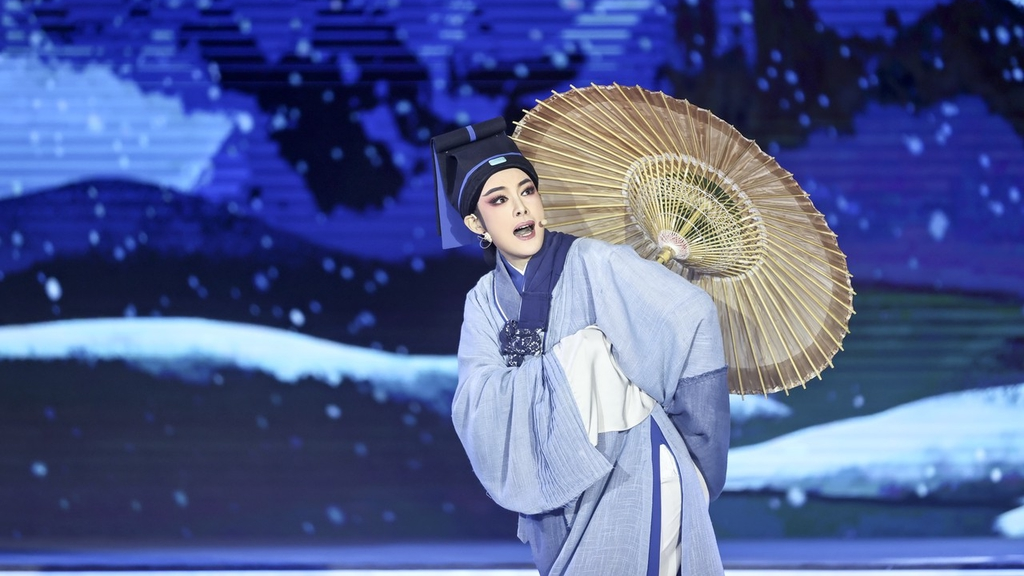In recent years, traditional Chinese opera has experienced a remarkable resurgence, captivating audiences with its powerful performances and artistic excellence. A standout example of this revival is the Yueju Opera “New Dragon Gate Inn,” performed by the renowned Xiao Bai Hua troupe from Zhejiang Province. This production has not only upheld the rich traditions of Chinese opera but has also infused it with fresh, contemporary energy, appealing to a new generation of theater enthusiasts.
The “New Dragon Gate Inn” represents a significant departure from conventional opera performances. It reimagines the classic martial arts story set in the Ming Dynasty (1368-1644), weaving a captivating tale of love, betrayal, and heroism. The plot revolves around iconic characters like Zhou Huai’an, Jia Ting, Jin Xiangyu, and Qiu Moyan, who find themselves entangled in a web of intrigue at the Dragon Gate Inn, located in a remote desert. This Yueju Opera adaptation breathes new life into the narrative, blending traditional elements with modern storytelling techniques.
A pivotal factor in the opera’s widespread appeal is its innovative approach to staging and performance. The immersive setting transports audiences directly into the story, placing them inside an inn complete with secret passages. This interactive experience creates a more engaging and dynamic atmosphere, breaking away from the static nature of traditional opera stages. Furthermore, the production diverges from the usual focus on romantic plots, instead delving into the complex world of martial arts and intrigue.
The young cast of “New Dragon Gate Inn” has played a crucial role in the opera’s success. Chen Lijun and Li Yunxiao, both born in the 1990s, have delivered standout performances in the leading roles, capturing the hearts of audiences and sparking vibrant online discussions. Their fresh interpretations of classic characters have brought a new perspective to Yueju Opera, making it more accessible and appealing to a broader demographic.
The incorporation of modern technology, such as live streaming and short videos, has significantly expanded the reach of “New Dragon Gate Inn.” The online broadcast of the opera attracted millions of viewers and generated thousands of comments, demonstrating the potential of digital platforms in promoting traditional arts. This approach has not only garnered widespread attention but has also opened up new avenues for interaction between performers and audiences.
The revival of Yueju Opera through “New Dragon Gate Inn” is not just a testament to the work’s charm but also a reflection of the enduring cultural heritage and artistic confidence embedded in this genre. The opera’s success has shown that traditional Chinese theater can adapt and thrive in the contemporary world, resonating with both older and younger generations.
The enthusiasm for “New Dragon Gate Inn” reached a peak with fans traveling from across the country to Hangzhou to witness Chen Lijun’s performance. Chen’s statement, “Opera is engraved in the DNA of the Chinese people. After a small stone is cast, the DNA awakens. I hope I am that small stone,” encapsulates the transformative impact of this production.
In conclusion, “New Dragon Gate Inn” has not only revitalized Yueju Opera but has also paved the way for the future of traditional Chinese opera. By embracing innovation while honoring its roots, this production has demonstrated that traditional arts can remain relevant and captivating in the modern era. The success of “New Dragon Gate Inn” serves as an inspiring example of how traditional forms can evolve and flourish, engaging new audiences and ensuring the longevity of these cherished cultural practices.
READ MORE:
